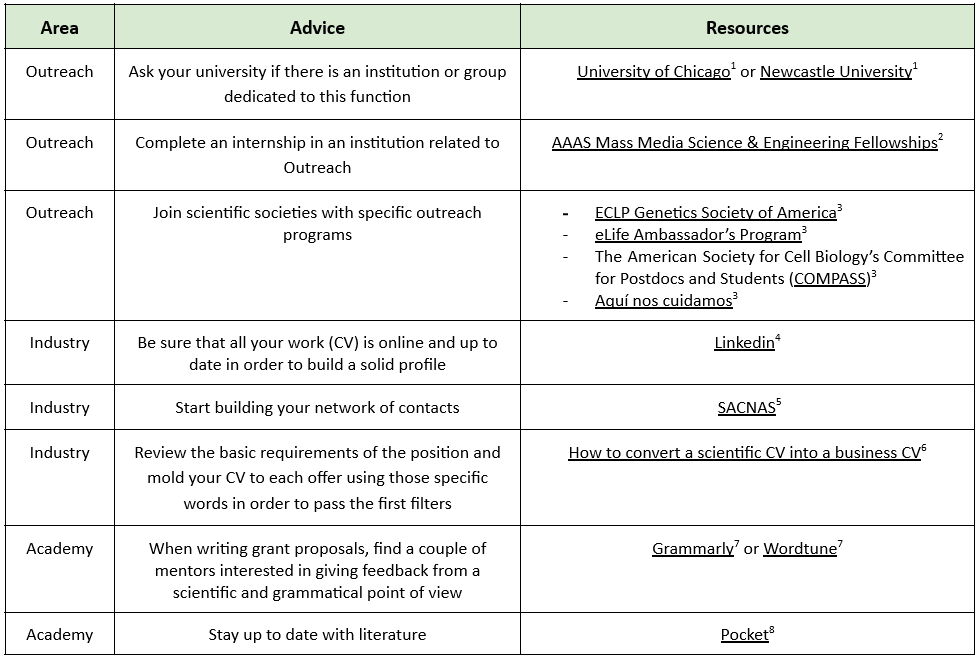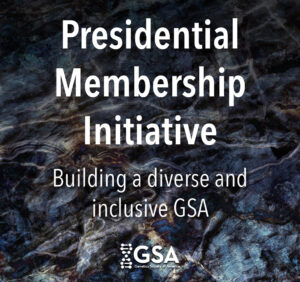Carla Bautista Rodriguez is a PhD candidate in evolutionary biology at Laval University (Canada) and a member of the Genetics Society of America. She is also passionate about outreach and scientific communication. She is an active member of various American and Spanish societies that are dedicated to bringing science to the general public.
The GSA multilingual seminar in Spanish, titled “Challenges of Doing and Communicating Science as Spanish Speakers,” was held on September 3, 2021. As revealed by the participant survey conducted during registration, the participants’ origins were very diverse, including many non-Spanish-speaking countries, which indicated the active participation of professionals working in their non-native tongue. Among the outstanding areas of expertise of the participants were pharmaceuticals, agriculture, government jobs, education, and research. This wide range of topics ensured a very fruitful seminar.
The need to meet
This survey revealed shocking perspectives on Spanish speakers in the field of science. While 50 percent of respondents claimed to have an advanced level of English, more than 75 percent admitted to feeling afraid or ashamed when expressing themselves in their professional field. Despite these concerns, more than 80 percent of participants reported making presentations in other languages, and more than 50 percent reported staying abroad. Most respondents also expressed interest in finding a job in countries where their mother tongue is not spoken.
Our panelists
The Spanish seminar was led by 3 incredible panelists with very diverse and interesting profiles. With a more industry-oriented profile, Roberto Carballido is a talent scout and defender of diversity who works for Eli Lilly and Company. A professor at the State University of New York at Buffalo, Javier Blanco is a renowned researcher in the fields of biochemistry and pharmaceutical sciences. And finally, with a biochemical background, Attabey Rodríguez Benítez is as an important science popularizer and editor of SciShow, a YouTube channel.
Challenges as Spanish speakers
We should normalize the experience of not being understood when we arrive in a new country. Consistency and practice are key. After years of dedication to learning a language, feeling disappointed when you do not achieve fluency in practice is normal. In addition, we have to consider the cultural shock of experiencing all these feelings alone, without the support of family and friends. Furthermore, researchers face constant pressure due to the highly competitive and demanding research environment. Therefore, finding a secure network where you feel comfortable is crucial.
Practical strategies for overcoming the English language barrier
As part of the seminar, we collected great tips from our panelists on speaking and interacting in English:
- Outreach is a good way to learn English because you have to explain difficult concepts in an easy way.
- If you feel that the language barrier is endless in the first instances of your scientific journey, look for other ways to communicate. Your skills can be displayed in many ways: scripts, graphs, techniques, new methods, etc.
- Find a community where you feel safe. The scientific community is likely multicultural in any country. You will interact with many people who are probably going through the same difficulties as you.
- Because of #3, native English scientists are used to many different accents, errors, vocabulary, etc. Accept that your accent is not native but still perfect. Your accent is what it is, and it’s nice because it’s a mixture of your native culture and your new culture. Enjoy that distinction! Do not be afraid! Stop looking for perfection. The important thing is to communicate effectively.
- If you feel that someone does not understand you, ask: have you understood me? Likewise, when you do not understand, ask your interlocutor to repeat and speak more slowly.
- There are many people who want to help, but they will not help you if you do not raise your hand. They won’t read your mind. Ask For Help. You will be surprised by how they help you.
- Use tools that make your day-to-day life easier—for example, Grammarly and Wordtune, which are web browser extensions that help correct your texts. (I’m currently using them as I write!)
Why should we continue speaking in Spanish about science?
Transmitting and communicating what we do in our native language is important. English-speaking children are more likely to become passionate about science because they have been exposed to more scientific content in English, the most used scientific language. We, therefore, have to end this bias! We need more resources in Spanish to create scientific interest among young Spanish speakers. The only ones who can do it are scientific Spanish speakers because they can translate science. Furthermore, during the pandemic, there was a growing need and demand from the general population for tools that would allow them to understand what was happening. Let’s take advantage of this opportunity and inform the public about our findings.
Model your professional career from now on
Finally, we had a conversation more oriented to each participant’s area of expertise, where they shared valuable advice and resources (Table 1). We hope you find all of this information useful, and we especially hope to see you at future GSA seminars! (You can rewatch the webinar here.)

Notes:
- a. https://college.uchicago.edu/academics/science-communications-courses
b. https://libguides.ncl.ac.uk/sciencecommunication - https://www.aaas.org/programs/mass-media-fellowship
- a. https://genetics-gsa.org/career-development/early-career-leadership/
b. https://elifesciences.org/inside-elife/bd8565f0/elife-ambassadors-an-invitation-to-take-part-in-2022
c. https://www.ascb.org/associated_committee/postdoc-graduate-student-compass-committee/
d. https://www.aquinoscuidamos.org/ - https://www.linkedin.com
- https://www.sacnas.org/
- http://jobsontoast.com/how-to-convert-a-scientific-cv-into-a-business-cv/
- a. https://app.grammarly.com/
b. https://www.wordtune.com/ - https://getpocket.com/es/





